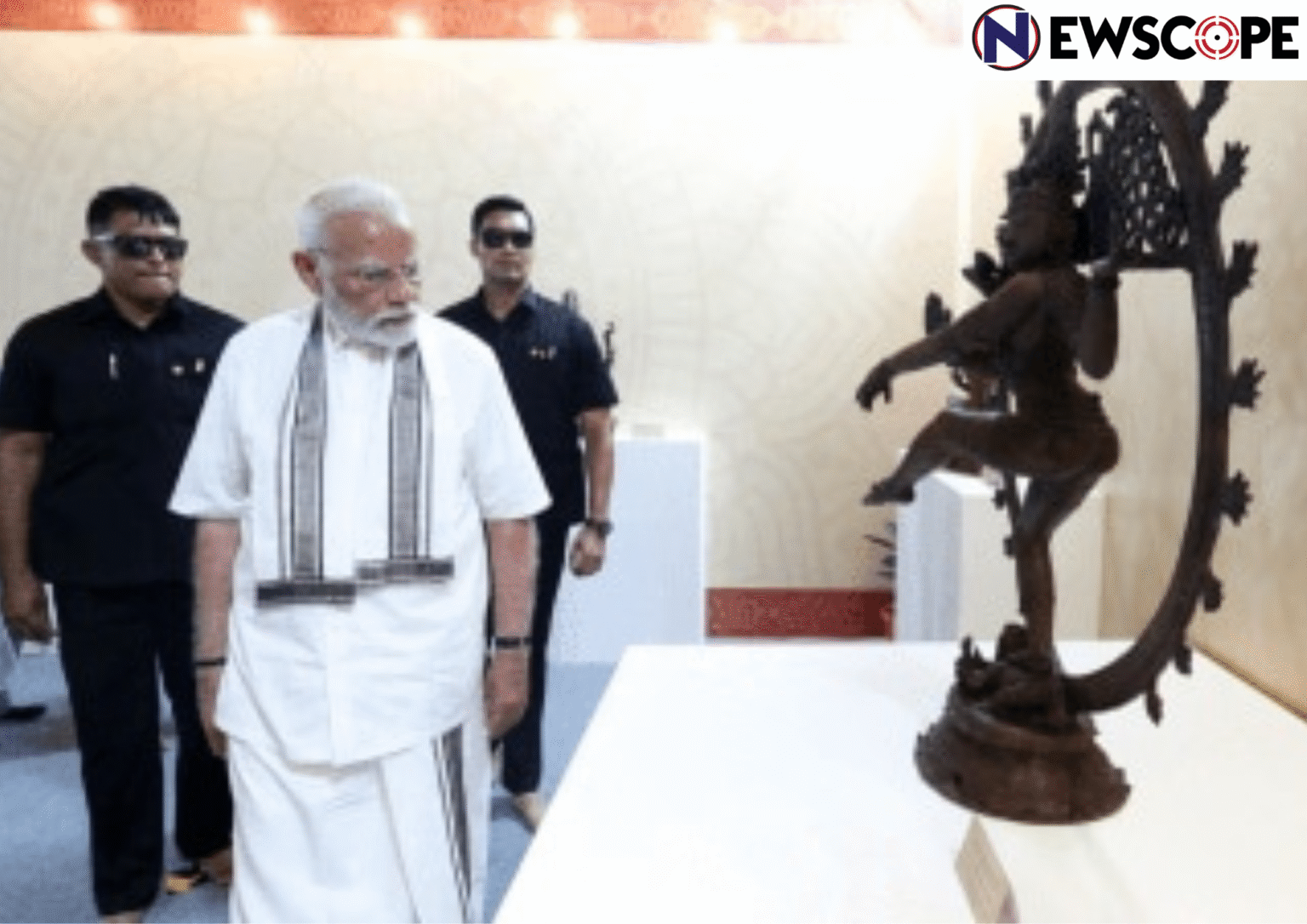As the towering stone temple of Rajendra Chola I loomed behind him, Prime Minister Narendra Modi reflected on a lesser-known legacy of the Chola dynasty—not just its architecture or military conquests, but its vibrant tradition of grassroots democracy.
“Historians talk about Britain’s Magna Carta in the name of democracy,” Modi said during his visit on Sunday. “But many centuries ago, elections were held in the Chola Empire through a democratic method.”
His remarks brought attention to a remarkable chapter in India’s history —one inscribed quite literally in stone. In the small village of Uttaramerur in Tamil Nadu’s Kanchipuram district, ancient inscriptions dating back over a thousand years describe an early and sophisticated system of local self-governance.
Long before the Enlightenment introduced ideas of representative government to Europe, the Cholas had established electoral rules for village administration. Historian K.A. Nilakanta Sastri, in his classic 1935 work “The Cholas”, described how villages were governed by elected councils —Sabhas for Brahmin settlements and Urs for others. These weren’t ceremonial bodies, they managed taxes, irrigation, temple affairs, and even local justice. “It was democracy at the grassroots,” Sastri wrote, “built into the fabric of Tamil civic life.”
At the heart of this democratic experiment was the Kudavolai system, literally the “ballot pot.” Candidates’ names were written on palm leaves and placed in a pot. A young boy, chosen for his neutrality, would draw a name in front of the village. The process was public, transparent, and widely respected.
The rules were strict. Candidates had to be tax-paying landowners between 35 and 70, with knowledge of Vedic texts or administrative skills. Anyone with a criminal record, unpaid debts, or even a drinking habit was disqualified. “The disqualifications were perhaps even more revealing than the qualifications,” noted Sastri. “They laid out a moral vision of public service.”
Accountability was serious: officials faced annual audits and could be removed for corruption, as recorded in ancient inscriptions.
Modi also recalled Rajendra Chola’s symbolic act of bringing Ganga water to his new capital in 1025 CE. “We hear about kings who brought gold and silver after conquests. But Rajendra Chola brought Gangajal,” he said. Highlighting a ruler who fused conquest with spiritual and civic vision.
While the Chola system excluded many, especially women and the landless. It remains a powerful reminder: democracy in India didn’t begin with the ballot box, but with palm leaves and pots, carved in stone centuries ago.



